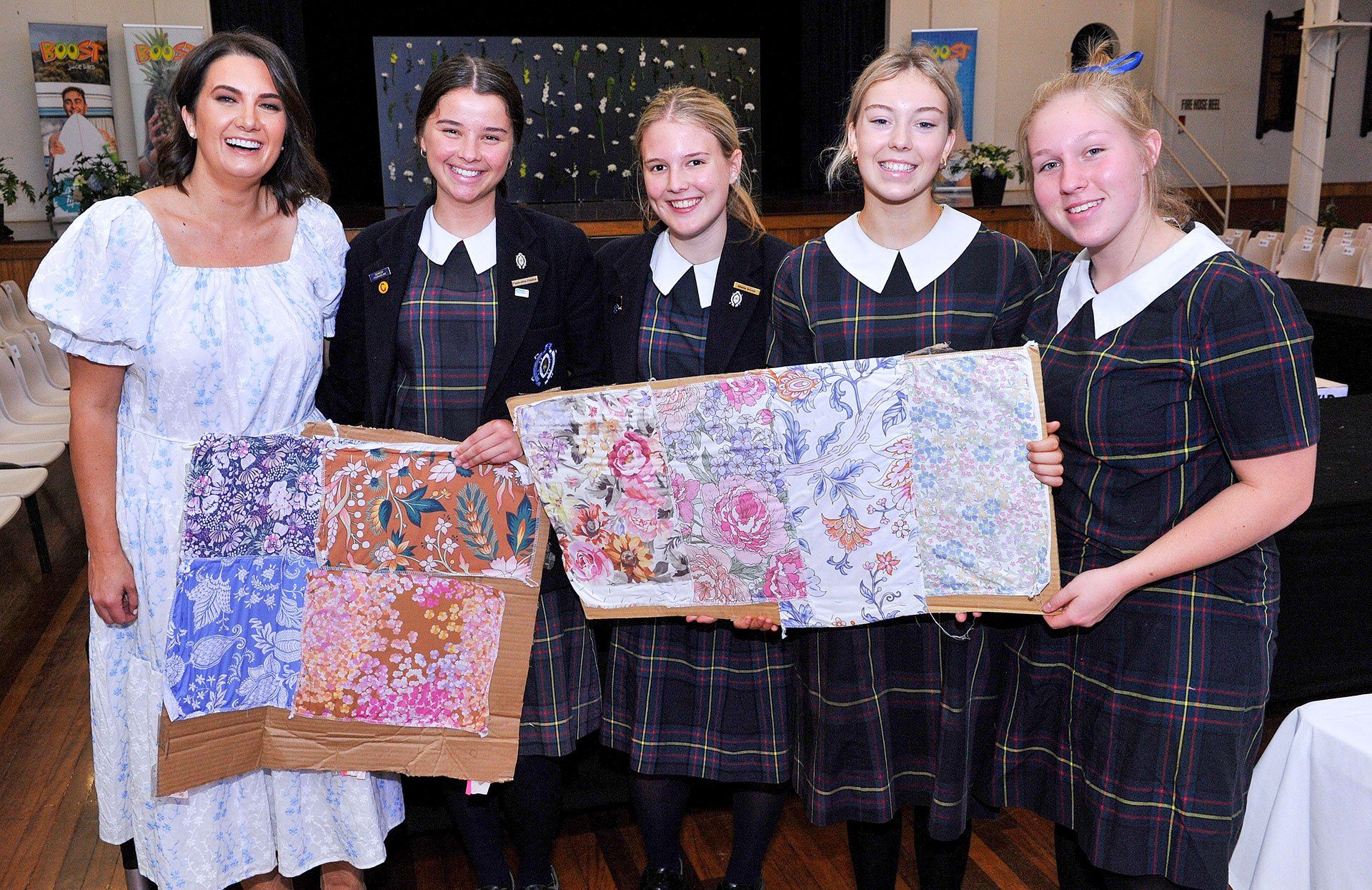Threads
I grew up in a household where thread was ubiquitous. With a mother who was a sewer, an embroiderer – a dressmaker, and a father who worked in the clothing industry it meant that I was raised on a textile diet. Later in childhood, I came to realise that it was actually unusual for a father to comment on clothing choices on the basis of fabric composition, ‘too much polyester in that,’ he would say, ‘it needs more cotton.’ It came as one of many embarrassing revelations about my parents. Silks, polyesters, jacquards, voiles, brocades, cottons, wool blend … these words were not uncommon fare in our dinner discussions.
But the threads I have been attuned to lately are more tartan in nature – or at least metaphorically so. The tartan metaphor is strong at Â鶹ÊÓƵ- a reference point for the values that connect us. The coloured threads appear differently in different lights, the warp and weft pronounce the pattern of ‘the Maclaren’. There is variation in appearance depending on time of day and perspective varies - for example, a group of girls in tartan pronounces and concentrates the colour and gives energy to the pattern. A uniform is a connection, superficial in one sense but also a signifier of a shared experience, time traveled together, commonalities that are never erased.
Just over a week ago I called in to the mothers’ long lunch to hear Edwina Robinson speak. Edwina was Head Boarder in my first year at Â鶹ÊÓƵ- the year was, unbelievably, 2003. It’s the privilege of being in a school for a while that you are able to witness the growth of girls to women – from adolescents eager to leave the jump’n’jive behind them to young confident women who are keen to look back and are not afraid to acknowledge from whence they have come. A chance meeting years after their departure from school reaps a wonderful link back to them as a student and who they have become as adults. You trace the years and almost always, you can see a palpable link between their ‘school self’ and their ‘adult self’. Often, you recognise the same qualities of determination, creativity, kindness and how they have been sewn into time, experience, and life itself.
Edwina muses at her erratic and unpredictable career path from school to now – yet I can see links that bind her ‘school self’ with her ‘adult self’ and those links are palpable. Edwina is best known for her stunning wedding photography, almost exclusively taken in rural settings yet COVID has pushed her into another space – fashion design. Having left school and completed a fashion design course, Edwina horrified her parents by finishing that and venturing straight into a personal training course. Real estate followed. Real estate photography ensued. Wedding photography was next, then … COVID and finally, back to the future: a fashion business Field the Design. As a people person, a creative person and an energetic person, her career choices are unsurprising. But these aren’t the deeper threads that are manifest in Edwina – the ones that were impressive in 2003 and are even more so, in 2021.
What struck me most when Edwina was in Year 12 was her decision to shave her head to raise funds for the leukemia foundation. From my understanding she was the first Â鶹ÊÓƵgirl to do so (certainly not the last) – a trailblazer with a social conscience. She was brave. She was a doer. She understood service. This is the motif that has also been apparent in her work as a wedding photographer – including her personal donation of $15,000 to the Tie Up the Black Dog organisation in 2015 after a picture she took in drought-stricken western Queensland went viral. And, in 2017, she undertook her 100 day, 27,000 kilometre ‘’Wander of the West’ with just her dog Geordie, no money, and the offer of her photography skills to families on stations in exchange for board, food and diesel. Her reason? To demonstrate to politicians and other Australians what life is like to the west of the Great Dividing Range. She particularly wanted to share the stories of resilience in the face of drought with those who needed to listen.
The things that define a tartan uniform are much deeper than that which appear to the eye. ‘The tapestry of history is woven with many threads.’ When we dig deeper than the surface of a career, we see the essence of people, and their motivations for why they do what they do. How special to see the creative essence, the people essence and the service essence of Edwina – nearly nineteen years on from her Â鶹ÊÓƵgraduation. That is ultimately what education is about – developing ‘person’ first. The filaments that bind one Â鶹ÊÓƵgirl with another and with her school are deeper than the superficial, deeper than the warp and weft of the tartan and, when strong, they have the ability to bind others together, particularly in times of need. Thank you, Edwina, for a reminder about what is important in a Â鶹ÊÓƵeducation.
‘The aim of education is the knowledge, not of facts, but of values.’ (William S. Burroughs)
Dr Linda Evans | Principal
More News



More News…







